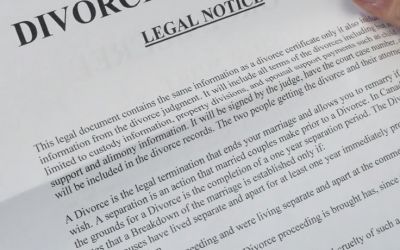Understanding the Role of Wali for Nikah in the UAE: A Complete Guide
Table of Contents ▼
When planning an Islamic nikah in the UAE, one question frequently arises: is a wali for nikah truly required?
For Muslim couples preparing to tie the knot in the UAE, clarifying the need for a wali (guardian) during the nikah ceremony is a vital step. This matter touches on both religious obligations and legal mandates, making it essential to comprehend fully as you plan your big day.
In this article, we’ll explore the necessity of having a wali for nikah in the UAE, shedding light on its religious and legal implications.
The Clear Answer: Wali for Nikah Is Required in the UAE
According to the Personal Status Law governing marriages in the UAE, the consent and presence of a wali for nikah are compulsory for the marriage to be considered valid. This aligns with Islamic jurisprudence and is strictly enforced across all emirates.
So, what does this mean for couples getting married in the UAE? Simply put, a wali’s involvement is not optional but a foundational part of a legitimate Islamic marriage contract.
The Importance of Wali in Islamic Tradition
The role of a wali for nikah has deep roots in Islamic teachings, which emphasize family participation in the marriage process. Traditionally, the wali acts as a guardian who represents and protects the bride’s interests.
This guardian role ensures that the bride’s rights are safeguarded during the contractual stages of the nikah and that the union is formed with full consent and awareness.
Who Is Eligible to Serve as Wali for Nikah?
Not just anyone can act as a wali for nikah. Islamic law and UAE regulations stipulate that the wali must be:
- A Muslim male relative of the bride
- Of sound mind and maturity
- Recognized for good character and religious understanding
The hierarchy for the wali usually follows this order of priority:
- Father (primary wali)
- Paternal grandfather
- Brother
- Paternal uncle
- Other male relatives on the paternal side
This sequence reflects the traditional emphasis on paternal family ties and the protective duties male relatives hold in marriage arrangements.
The Role of the Wali During the Nikah Ceremony
In the UAE, the wali for nikah plays several important roles throughout the marriage proceedings:
- Formally consenting to the marriage on behalf of the bride
- Engaging in discussions about the mahr (dowry)
- Advocating for the bride’s interests during contract negotiations
- Being physically present at the nikah ceremony to fulfill legal obligations
- Signing the marriage contract as a key party
The wali’s involvement is more than just ceremonial; it is a critical component that ensures the marriage’s legality under UAE law.
Special Situations: When a Court-Appointed Wali Is Necessary
Recognizing that not all brides may have a suitable male guardian available, the UAE’s legal system allows courts to appoint a wali when needed. A judge, or qadi, can assume this role in cases such as:
- The absence of any qualified male relatives
- A wali unreasonably withholding consent to a proper marriage
- The natural wali being unavailable, such as residing abroad
- Women who have recently converted to Islam without Muslim male relatives
This provision guarantees that the wali for nikah requirement does not become a barrier to marriage, while maintaining the integrity of Islamic tradition.
Can the Wali Requirement Be Waived in the UAE?
Under UAE law, Muslim women cannot bypass the wali for nikah requirement when marrying within the country. This rule applies universally, covering:
- UAE nationals
- Expatriate residents
- Visitors marrying in the UAE
The wali’s presence is legally essential for the marriage contract’s validity, not a flexible tradition that can be ignored.
For non-Muslim expatriates marrying under civil or other religious laws, the wali rule does not apply. However, for Islamic marriages, the wali for nikah remains a consistent legal necessity across all emirates.
Legal Consequences of Marrying Without a Wali
Marriages conducted without a wali for nikah in the UAE face serious legal consequences, including:
- Inability to register the marriage officially with government authorities
- Lack of legal protections for spouses
- Non-recognition of the marriage for visa or residency purposes
- Potential legal complications in case of separation or dispute
Understanding and complying with the wali requirement is crucial to avoid these pitfalls and ensure your marriage is legally sound.
Honoring Tradition While Planning Your Ideal Nikah
Though legal requirements may seem complex, your nikah is ultimately a beautiful celebration of love rooted in Islamic values. The wali for nikah symbolizes family support and continuity as you begin your married life.
At Easy Wedding, we help couples navigate both the spiritual and legal aspects of the nikah process. Whether you need help with paperwork, family arrangements, or full wedding planning services, our expert team is ready to make your nikah seamless and memorable.
Ready to plan your perfect nikah in the UAE with full respect for tradition and law? Reach out to us and let’s create a marriage celebration that truly reflects your unique journey together.



